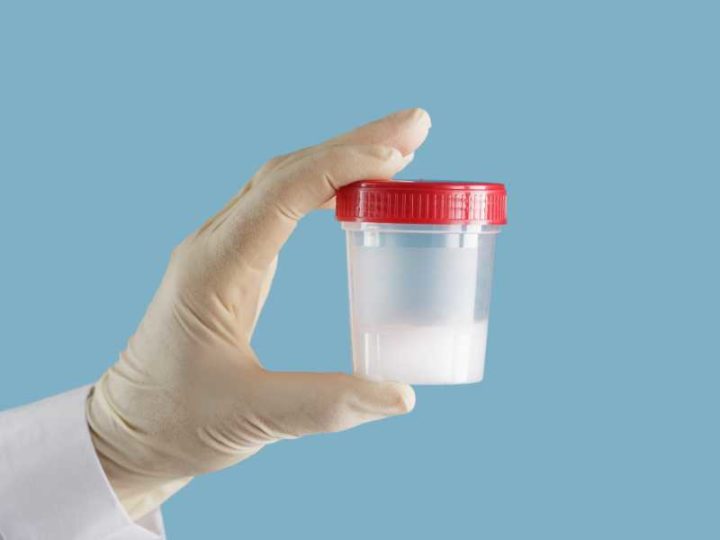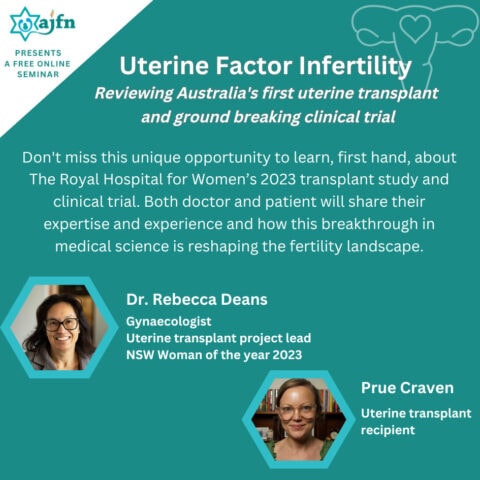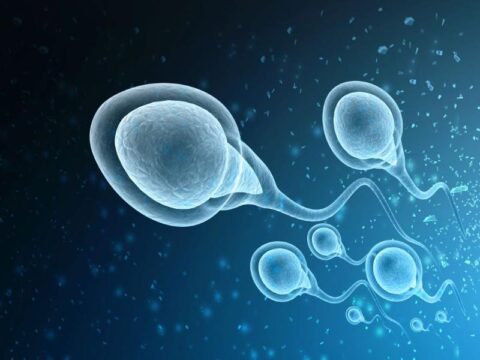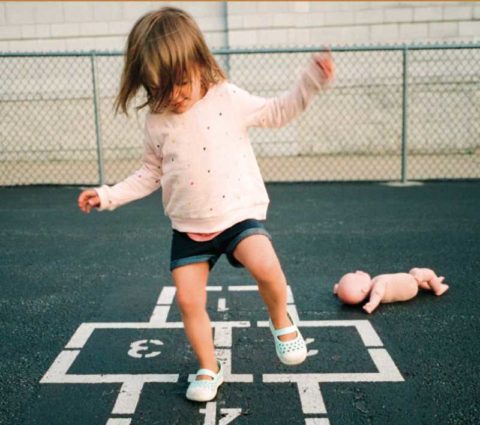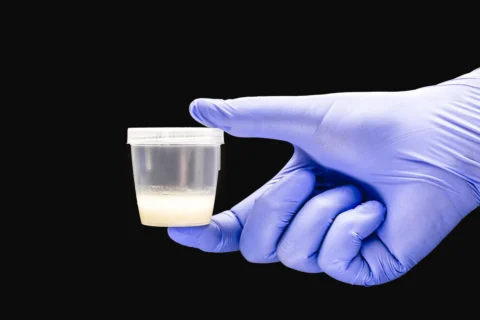Who uses it? Who donates it? And what’s involved? Here is everything you wanted to know about this unique (and increasingly common) way of starting a family.
More about Sperm Donation
At a glance:
- Sperm donation refers to the use of sperm that has been donated to assist an individual or couple in becoming parents
- Donors may be de-identified or known, and the rules vary depending on which state you live in
- A vigorous physical and psychological screening process is required for both donor and recipient
When you think about sperm donation, you wouldn’t be alone if what springs to mind is what we see in the movies, namely – a man rocking up to a clinic with a dirty magazine and a plastic cup. However, Melbourne-based fertility specialist Dr Melissa Cameron emphasises that becoming a sperm donor isn’t quite that straightforward.
“It’s a complex process that involves undergoing medical checks and counselling sessions,” she explains. “It’s not as simple as what you see in the movies.”
So, what’s involved for donors?
When volunteering to donate sperm in Australia, donors can expect the following:
- A thorough examination of their medical history
- A semen analysis and screening of their blood for genetic problems and infectious diseases
- Five to 10 sperm collection appointments
- Quarantining of samples for three to six months – followed by repeat infectious disease testing – before being cleared for use
Who uses the donated sperm?
There are a range of people who require sperm donation, from single women to same-sex couples and heterosexual candidates struggling to conceive on their own. These days, the demand for sperm donors is higher than ever. Dr Cameron says it’s mostly single women and those in same-sex relationships expressing interest in utilising donor sperm.
“There are some heterosexual couples who for one reason or another need donor sperm,” she adds. “It may be that the man doesn’t have any, there are significant abnormalities with his sperm or even a disease he could pass on.”
With many people considering using donated sperm from family or friends, it’s tempting to go down the DIY route, and deal with the issue at home. Dr Cameron says that’s a bad idea, largely due to the infectious disease risk – and that you’re far safer going through a clinic. “We test for sexually transmitted infections and quarantine the sperm,” she explains. The mandatory counselling sessions and guided discussions also offer a major benefit.
Will I be in contact with the donor/recipient/offspring?
Victoria, NSW and WA have dropped the veil of donor anonymity – a legislative change introduced due to the distress expressed by donor program offspring about the lack of accessible information on their biological ancestry. If conception is successful, donors remain anonymous until the child turns 18 at which age they’re able to access a host of identifying details and potentially meet the donor. In some circumstances, this can occur at an earlier age.
“There are a lot of difficult questions that need asking when you know the donor as you are potentially entering into a lifelong relationship where you will have contact with the offspring,” explains Cameron. “Our counsellors help facilitate those discussions.”
But these conversations aren’t just reserved for known donors. Whether you’re using a friend or a de-identified volunteer, there are many ethical considerations to talk through pre-procedure – all topics covered in your counselling sessions that should be covered if you go through a reputable clinic.
Expect to talk through the following:
- How and when to chat to your kids about their genetic origin
- How to manage the response from family and friends
- Your expectations of the donor’s role in the future
It’s essential to have a clear understanding of both the physical and emotional requirements of the process before you commit to the program. Discussing your thoughts with a trusted fertility specialist is a good first step.
Additional Sources
https://www.ivf.com.au/fertility-treatment/donor-program/become-a-sperm…
https://www.ivf.com.au/sites/default/files/leaflets/cln-096_using_a_spe…
Donating Sperm
Making a sperm donation is one of the most generous things you can do, as it gives others the chance to have a baby.
The reasons why people need to access donor sperm are varied, and include those having difficulty conceiving because of male reproductive issues, single women who want to have a child, and same sex and LGBTQ+ people wanting to grow their family.
IVF Australia has a dedicated and experienced donor team who provide guidance and support for donors and recipients throughout the process.
Reasons to become a sperm donor
There are many reasons people decide to become sperm donors. Some of these include:
- Wanting to make a difference that will last a lifetime
- You or someone you know has struggled with infertility
- You have children of your own, and want to help others experience that joy
- You’d like to help someone you know who needs a sperm donor
Plus, during the process you’ll get information about your personal health and fertility, including the results of a semen analysis and genetic screening for risk factors.
Who can be a sperm donor?
If you’re a healthy man aged between 21 and 45, and you’re willing to donate altruistically (without payment), we’d love to hear from you.
Our experienced donor team will be happy to talk you through the process in more detail.
Can I be a completely anonymous donor?
No. The privacy of all donors is protected until the child is aged 18, however, once a child is born from a sperm donation, we are required to provide identifying details of the donor to the NSW Health Central Register. When the child is aged 18, they will be able to access this information.
The reason for this is that in the past, many donor conceived individuals have reported extreme distress about the absence or lack of information about their biological parents. Nowadays, the exchange of this information, once the child has turned 18 years of age, is an important part of the process.
Can I be paid to be a sperm donor?
In Australia, it’s illegal to take payment for any human tissue, including sperm. However, you can be reimbursed for any expenses you incur through the process of donating sperm, this includes things like parking, travel, and medical expenses. This is either paid by the recipient if they are known to you, or by IVFAustralia.
The sperm donation process – step by step
The step-by-step process involved in sperm donation is also outlined below:
Step 1 – An appointment will be made for you to meet with one of our Fertility Specialists, who will record your medical history, including both your physical and mental health.
Step 2 – You will have two sessions with an IVFAustralia counsellor to discuss the social, ethical and legal implications of sperm donation. During this time you will complete a profile about yourself, provide a family medical history, and will also sign consent forms for donation. If you have a current partner, they must also attend these sessions to ensure you are both comfortable and clear about the process involved
Step 3 – Our donor coordinators will contact you when counselling is completed to organise an appointment for a semen analysis and screening of your blood for infectious diseases and some genetic conditions
Step 4 – Our Genetic Counsellor will call you to discuss your family medical history, and to explain the genetic tests that have been performed
Step 5 – Once all the test results are back, we will notify you of them and plan (together with you) visits to our clinic for your donation appointments. We will need you to make between five and ten appointments to complete this
Step 6 – Your sperm is quarantined for three or six months, after which time we ask you to attend for a further blood test, for a final screen for infectious diseases. Once complete, your sperm can be cleared for use. It will then be released to our recipients for IVF treatment, to help them conceive their baby.
Step 7 – Once a baby is born from your donation, we are required to provide your identifying details to the NSW Health Central Register. The privacy of all donors is protected until the donor conceived child is 18, at which age they can access this information. The reason for this is that in the past, many donor conceived individuals have reported extreme distress about the absence or lack of information about their biological parents. Nowadays, the exchange of this information, once the child has turned 18 years of age, is considered to be an important part of the use of donated sperm.
How do I become a sperm donor?
If you are interested in becoming a sperm donor complete the form on the IVF Australia website or call 1800 111 483.
We’ll make sure the process is as simple and straightforward as possible for you, including:
- Flexible appointment times to fit with your schedule, and counselling sessions to ensure you (and your partner if applicable) are comfortable with the process
- Tests and collection in our private clinics at a location convenient to you
- Complete confidentiality throughout the process
- Reimbursement for any expenses you incur (parking, travel, medical expenses and some compensation for your time).
IVF Australia | October 2020
Sources – https://www.ivf.com.au/blog/spotlight-on-sperm-donation
https://www.ivf.com.au/treatments/donor-programme/donating-sperm
